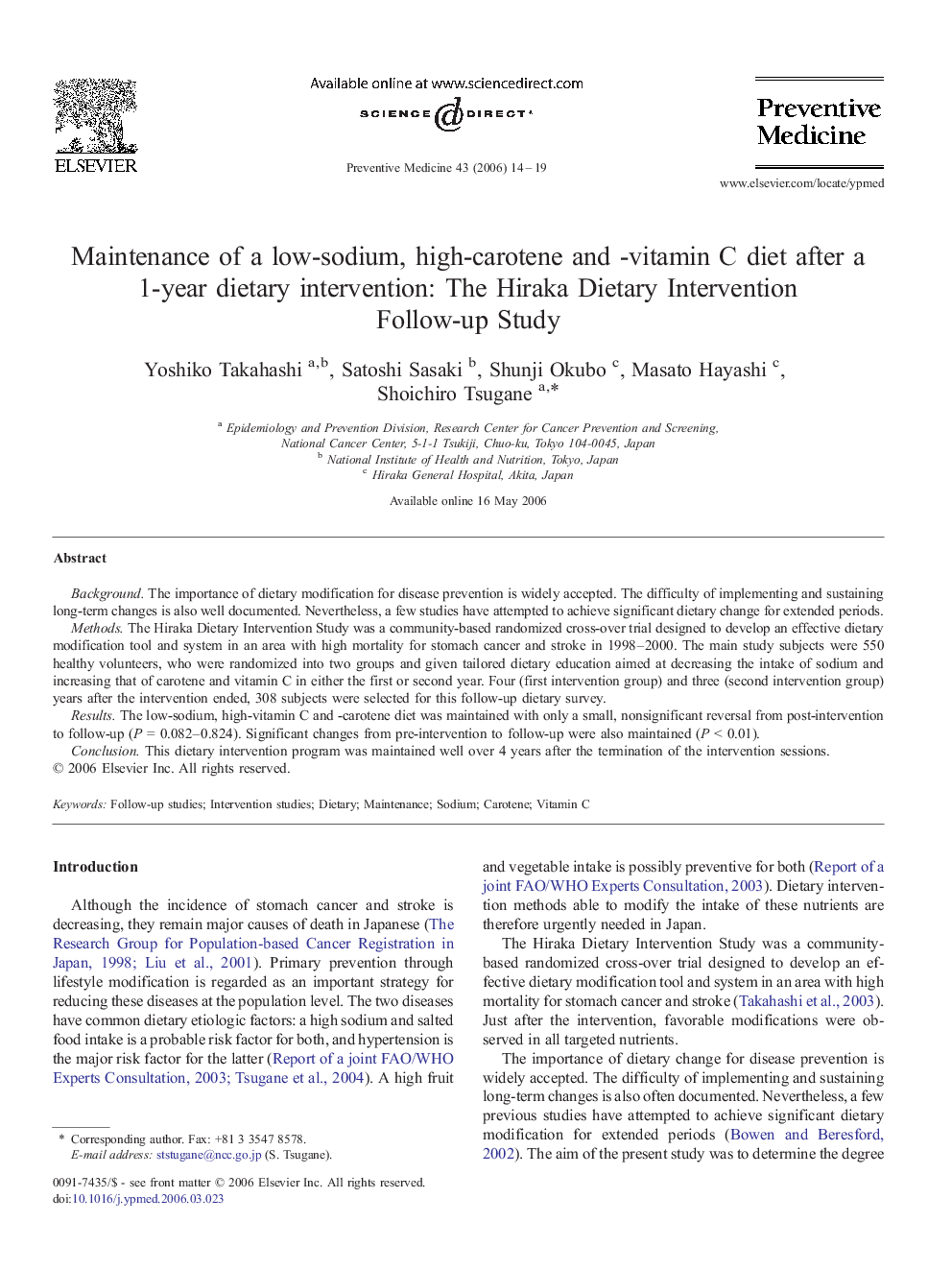| Article ID | Journal | Published Year | Pages | File Type |
|---|---|---|---|---|
| 3102116 | Preventive Medicine | 2006 | 6 Pages |
Background.The importance of dietary modification for disease prevention is widely accepted. The difficulty of implementing and sustaining long-term changes is also well documented. Nevertheless, a few studies have attempted to achieve significant dietary change for extended periods.Methods.The Hiraka Dietary Intervention Study was a community-based randomized cross-over trial designed to develop an effective dietary modification tool and system in an area with high mortality for stomach cancer and stroke in 1998–2000. The main study subjects were 550 healthy volunteers, who were randomized into two groups and given tailored dietary education aimed at decreasing the intake of sodium and increasing that of carotene and vitamin C in either the first or second year. Four (first intervention group) and three (second intervention group) years after the intervention ended, 308 subjects were selected for this follow-up dietary survey.Results.The low-sodium, high-vitamin C and -carotene diet was maintained with only a small, nonsignificant reversal from post-intervention to follow-up (P = 0.082–0.824). Significant changes from pre-intervention to follow-up were also maintained (P < 0.01).Conclusion.This dietary intervention program was maintained well over 4 years after the termination of the intervention sessions.
